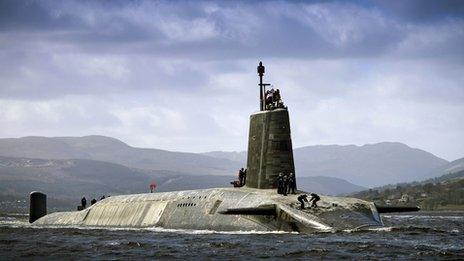Election 2015: Can SNP really smash Labour?
- Published
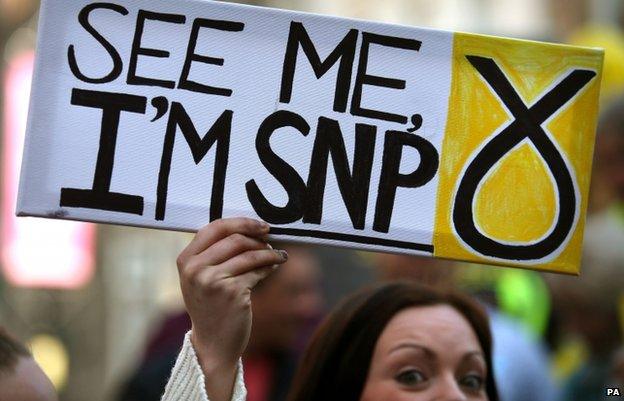
The runaway assumption of this election is that the SNP will sweep all before them, smashing Labour's decades' old dominance in Scotland.
That would in turn damage Labour's chances of forming a government and give the Conservatives all sorts of ammunition to stir trouble for their chief rivals during the campaign.
But even in Dundee, a city that voted overwhelmingly for independence, the situation on the ground feels more fluid than the polling suggests.
Certainly the SNP operation is full of energy. In Dundee West, where polls suggest its candidate Chris Law - a prominent Yes campaigner - will storm in, the campaign office is full of activists, driving off in a specially decked out bright yellow bus to knock on doors, three times a day.
There are canvass returns carefully stacked in every corner; SNP leaflets, stickers, badges, and memorabilia everywhere.
They are getting new members every day, they say, and while they insist they're not taking anything for granted, they're brimming with confidence.
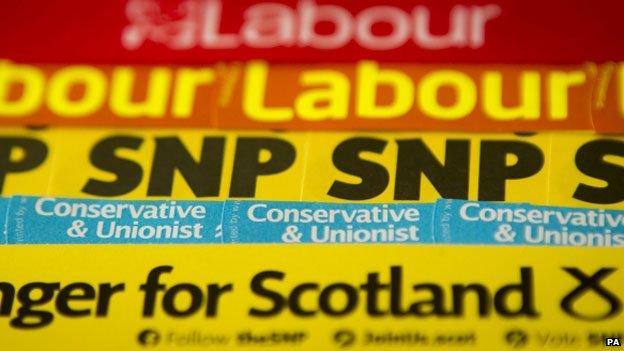
Mr Law says: "A year ago people were debating in the pubs and in the cafes and in the hairdressers and in the shops, and that's going on again and that's great.
"Dundee is a Yes city. As we know, they would like to see as the inevitable long run for ourselves to be independent as a nation and I'm not going to shirk away from that. But for this election, it's definitely about ending austerity."
But the argument isn't over, even here.
Surveys have suggested as many as 15% of Scottish voters are still undecided, despite the country having spent much of the last year locked in conversations about politics.
Labour insiders are well aware it may be far too late but they have now moved resources and staff north, with 33 organisers working to defend their seats whereas, at the last general election, they only had eight.
In their seats, rather than the national picture the polls portray, they are 6% behind. That's a gap one senior figure says: "We can close".
That's probably wishful thinking. The newly selected Labour candidate in Dundee West, Michael Marra, says: "At times in the past, on certain issues, we have let people down. We haven't been as responsive to the communities we seek to serve, the communities we've been brought up in, as we should."
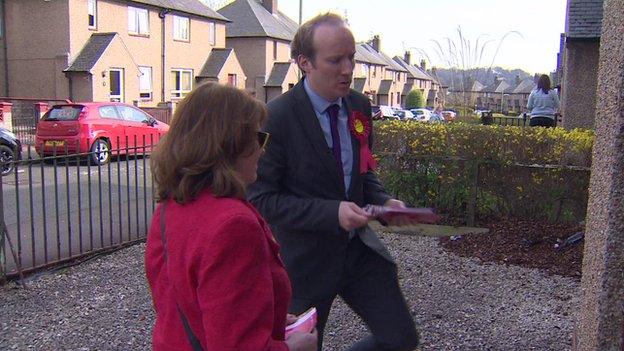
But he says the SNP are desperate to talk about the maths of who can form the government after the election. "That's what they do," he says. "They do politics. Actually I'm interested in people."
Something else is brewing, however. It is hard ever to be definitive about tactical voting and its effects. But a group of activists who worked together to oppose independence have reunited to try to stop, or at least hold back, the SNP surge.
The campaign, United Against Separation (UAS), claims to have around 600 activists signed up in Scotland, from Labour, Tory, Lib Dems and those who aren't in any parties. They have pledged to help the SNP's closest rival in every single seat in Scotland, no matter who it is.
The group says it is already delivering campaign materials and knocking on doors to try to switch votes. Andrew Skinner from the campaign told me in one Labour-held seat this week, Inverclyde, that activists from UAS persuaded dozens of voters in a Tory area of the seat to vote Labour, to help block the SNP.
Mr Skinner said: "People won't say publicly, but be it a Labour or a Tory area they are happy to vote the other way to keep the SNP out."

Will tactical voting from former "No" campaigners play a role in May's election?
It's hard to verify their claims but Dundee-based Lib Dem activist Fraser McPherson says there is "absolutely no doubt" they are seeing tactical voting right across north-east Scotland.
One voter tells me: "I'm interested in a tactical vote... there are a lot of people like me who don't want to make a big noise about it."
Even once the polls are closed, the results are in, and we know how big the SNP success story is, we'll never be able fully to quantify the impact of voters making tactical choices. But Mr Skinner believes it's "on people's lips" and could take some of the shine off the SNP's likely victories.
The SNP is, though, the dominant force. There is no question they are on course to take significant numbers of seats in Scotland. But with four weeks to go we can't know just how big their influence will turn out to be.
I remember the confidence displayed by many Yes campaigners in the week before the independence referendum and their crashing disappointment afterwards. The polls of course are this time, completely different and it's a totally different vote.
However, in an election as unpredictable as this one, runaway assumptions could well turn out to be wrong.
- Published10 April 2015
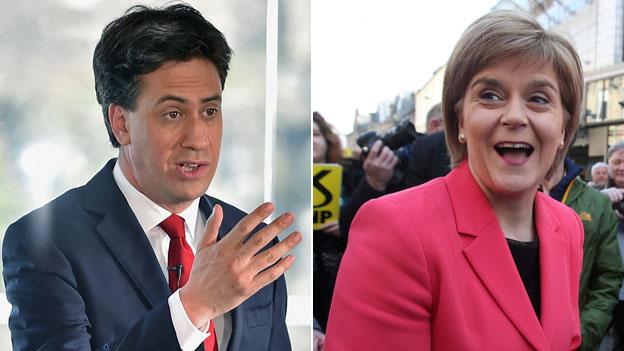
- Published9 April 2015
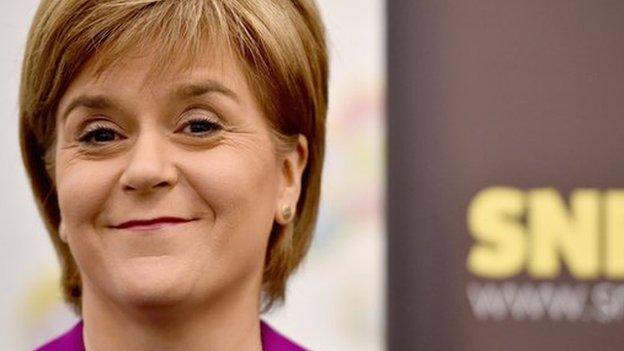
- Published9 April 2015
